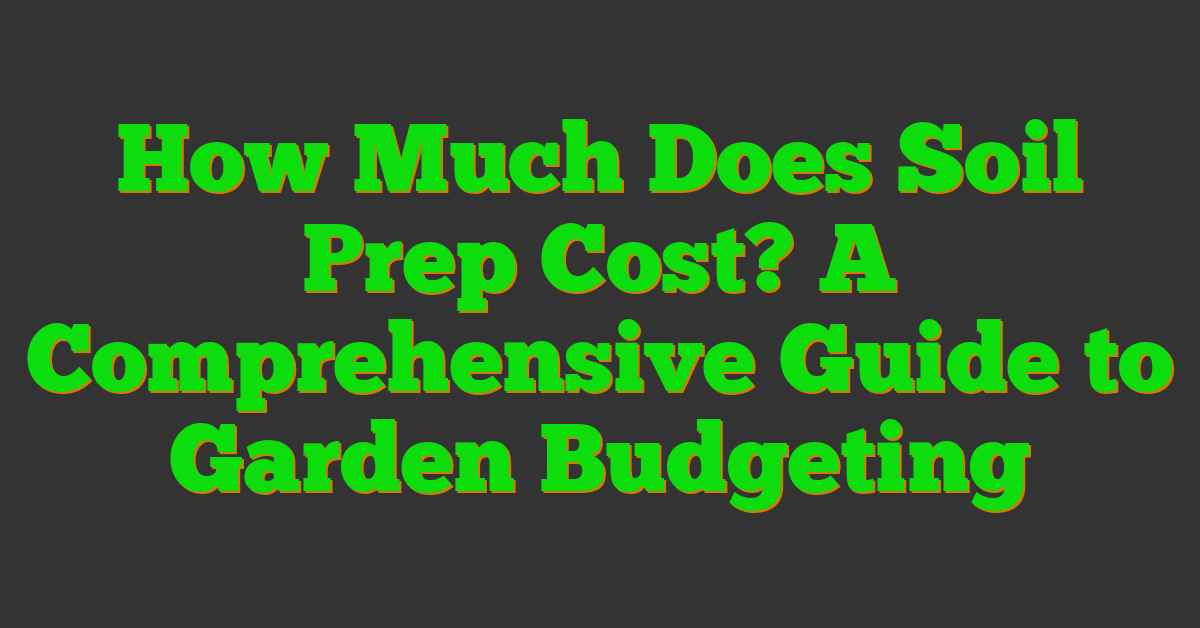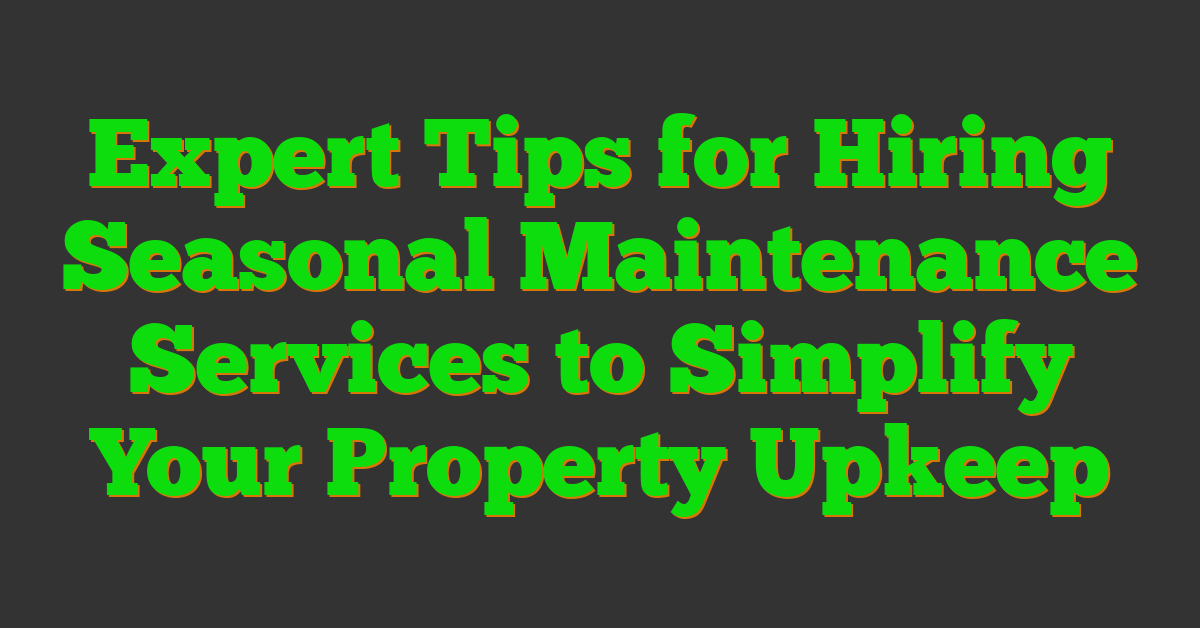Preparing your soil is the foundation of a thriving garden, but you might be wondering how much it’s going to cost. I’ve spent time researching the various factors that can influence soil preparation expenses to help you plan effectively.

From soil testing and amendments to labor and equipment, there are several elements to consider. Whether you’re a seasoned gardener or just starting out, understanding these costs can ensure your plants get the best start possible.
By breaking down each aspect, I aim to provide a clear picture of what to expect, so you can make informed decisions and create a garden that flourishes without breaking the bank.
Factors Influencing Soil Preparation Costs
Understanding the key factors helps me estimate soil preparation expenses accurately. Each element plays a crucial role in the overall cost.
Soil Testing and Analysis
I start with soil testing to determine nutrient levels and pH balance. Basic tests cost between $15 and $50, while comprehensive analyses range from $100 to $200. Accurate testing ensures I apply the right amendments for optimal plant growth.
Fertilizer and Amendments
Fertilizers and soil amendments enhance soil fertility. My expenses typically include:
| Amendment Type | Cost Range per Bag |
|---|---|
| Compost | $20 – $40 |
| Manure | $15 – $35 |
| Synthetic Fertilizer | $10 – $30 |
The total cost depends on garden size and specific nutrient needs. Organic options often provide long-term benefits, whereas synthetic fertilizers might offer immediate results.
Labor and Equipment
Labor and equipment are significant cost factors. Here’s a breakdown:
| Service/Equipment | Cost Range |
|---|---|
| Professional Labor | $25 – $75 per hour |
| Renting Equipment | $40 – $100 per day |
| Purchasing Tools | $50 – $300 one-time |
Hiring professionals ensures efficiency but increases expenses. Alternatively, investing in or renting equipment allows me to manage costs over time while handling the work myself.
Average Soil Preparation Costs
Soil preparation costs vary based on project size and specific requirements. Here’s a detailed breakdown for different project types:
Residential Projects
Residential soil preparation typically ranges from $500 to $2,000. Key factors include:
- Soil Testing: $15–$200 to determine nutrient needs.
- Amendments:
- Compost: $20–$40 per bag
- Manure: $15–$35 per bag
- Synthetic Fertilizers: $10–$30 per bag
- Labor: $25–$75 per hour for professional services.
- Equipment:
- Rental: $40–$100 per day
- Purchase: $50–$300 for essential tools
Commercial Projects
Commercial soil preparation costs generally range from $5,000 to $20,000. Influencing factors include:
- Soil Testing: Up to $500 for comprehensive analysis.
- Bulk Amendments:
- Compost: $15 per cubic yard
- Manure: $20 per cubic yard
- Synthetic Fertilizers: $15–$50 per bag
- Labor: $25–$75 per hour, with increased total hours.
- Heavy Equipment:
- Rental: $100–$500 per day for machinery
- Purchase: $300–$2,000 for specialized tools
- Additional Costs: Larger projects may require extra materials and extended labor periods.
| Expense Category | Residential Cost (USD) | Commercial Cost (USD) |
|---|---|---|
| Soil Testing | $15–$200 | Up to $500 |
| Compost | $20–$40 per bag | $15 per cubic yard |
| Manure | $15–$35 per bag | $20 per cubic yard |
| Synthetic Fertilizers | $10–$30 per bag | $15–$50 per bag |
| Labor | $25–$75 per hour | $25–$75 per hour |
| Equipment Rental | $40–$100 per day | $100–$500 per day |
| Tool Purchase | $50–$300 | $300–$2,000 |
This table outlines the comparative costs between residential and commercial soil preparation, helping you estimate expenses based on your project’s scope.
Soil Preparation Methods
Choosing the right soil preparation method impacts both your garden’s health and your budget. I explore the primary techniques to help you decide the best approach for your gardening needs.
Tilling and Plowing
Tilling and plowing involve mechanically turning the soil to aerate it and incorporate organic matter. I typically use a rototiller, which costs around $50 to $300, depending on the model and size. For larger gardens, renting equipment can range from $40 to $100 per day. This method enhances soil structure, improves drainage, and facilitates root penetration. Additionally, tilling helps distribute amendments evenly, ensuring plants receive consistent nutrients. However, it can increase labor costs, especially for extensive areas, and may disrupt soil microorganisms if done excessively.
No-Till Techniques
No-till techniques minimize soil disturbance, preserving its natural structure and benefiting soil health. I apply organic mulches, such as straw or compost, to suppress weeds and retain moisture. These materials typically cost between $20 and $40 per bag. Cover cropping is another no-till strategy, where I plant crops like clover or rye to enrich the soil. This approach reduces labor and equipment expenses, as it eliminates the need for mechanical tilling. Additionally, no-till methods enhance carbon sequestration and promote beneficial microbial activity, leading to long-term soil fertility without the added costs of frequent soil manipulation.
Tips to Reduce Soil Preparation Costs
- Conduct Basic Soil Testing
Start with a simple soil test from local extension services for about $15. It pinpoints essential nutrients, ensuring you buy only what’s necessary.
- Utilize Homemade Compost
Create compost from kitchen scraps and yard waste at no cost. This enriches your soil without purchasing commercial options.
- Incorporate Manure
Source manure from local farms, typically priced between $15 and $35 per cubic yard. It adds organic matter affordably.
« How to Make a Mosaic Garden Table: Step-by-Step DIY Guide Best Tools for Water Feature Maintenance: Keep Your Pond & Fountain Pristine »
- Rent Instead of Buy Equipment
Rent rototillers for $40 per day instead of buying. This reduces upfront costs while still preparing your soil effectively.
- Adopt No-Till Methods
Implement no-till practices to maintain soil structure and decrease the need for frequent amendments, saving both time and money.
- Opt for DIY Labor
Handle soil preparation tasks yourself to eliminate labor costs, managing expenses within the $500 range for residential projects.
- Choose Cost-Effective Fertilizers
Select synthetic fertilizers priced between $10 and $30 based on your soil’s needs, ensuring you spend only on necessary nutrients.
- Leverage Bulk Purchases
Buy amendments like compost or manure in bulk to take advantage of lower per-unit costs, especially for larger gardens.
| Tip | Estimated Savings |
|---|---|
| Basic Soil Testing | $15 |
| Homemade Compost | Varies, up to $100 annually |
| Renting Equipment | $40 per day |
| No-Till Methods | Reduces long-term costs |
| DIY Labor | $500 for residential projects |
By following these strategies, I can effectively manage soil preparation expenses, ensuring a healthy garden without overspending.
Conclusion
Preparing your soil sets the foundation for a thriving garden. By understanding the costs involved and exploring ways to manage your budget, you can create the perfect environment for your plants without breaking the bank. Whether you decide to handle the work yourself or hire professionals, careful planning ensures your garden flourishes. Here’s to cultivating a beautiful and healthy space you’ll love spending time in!
















